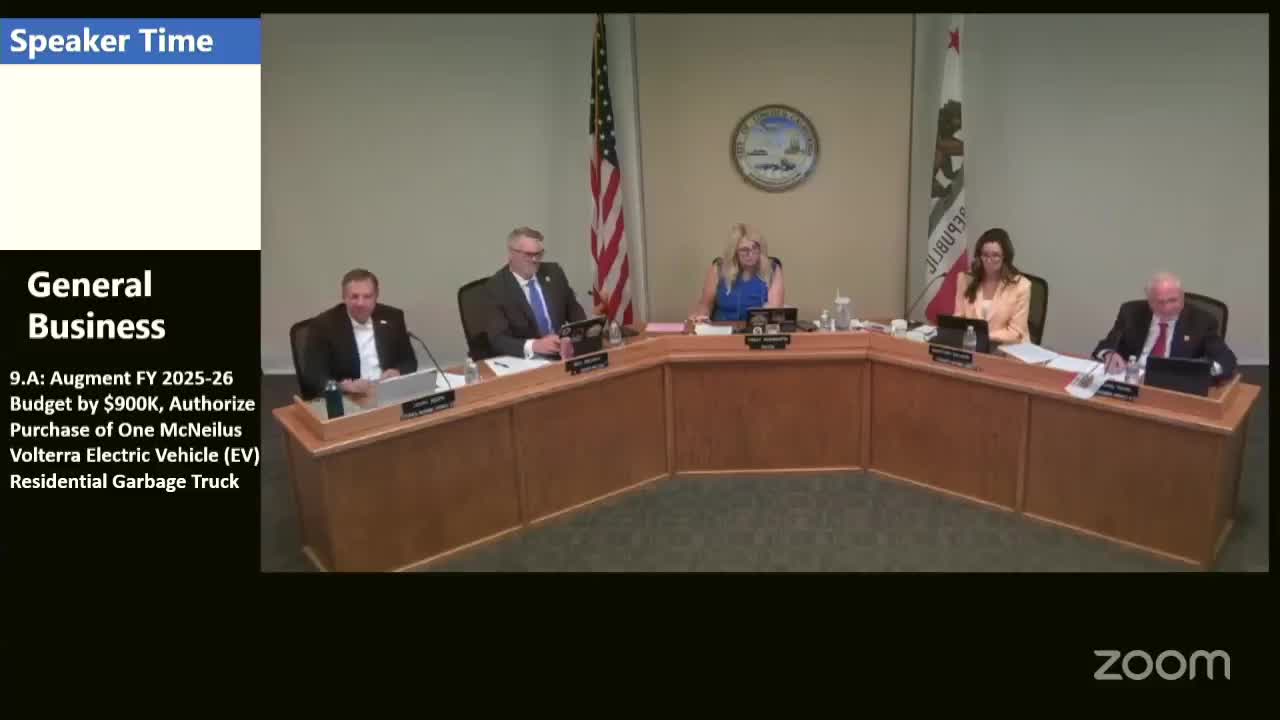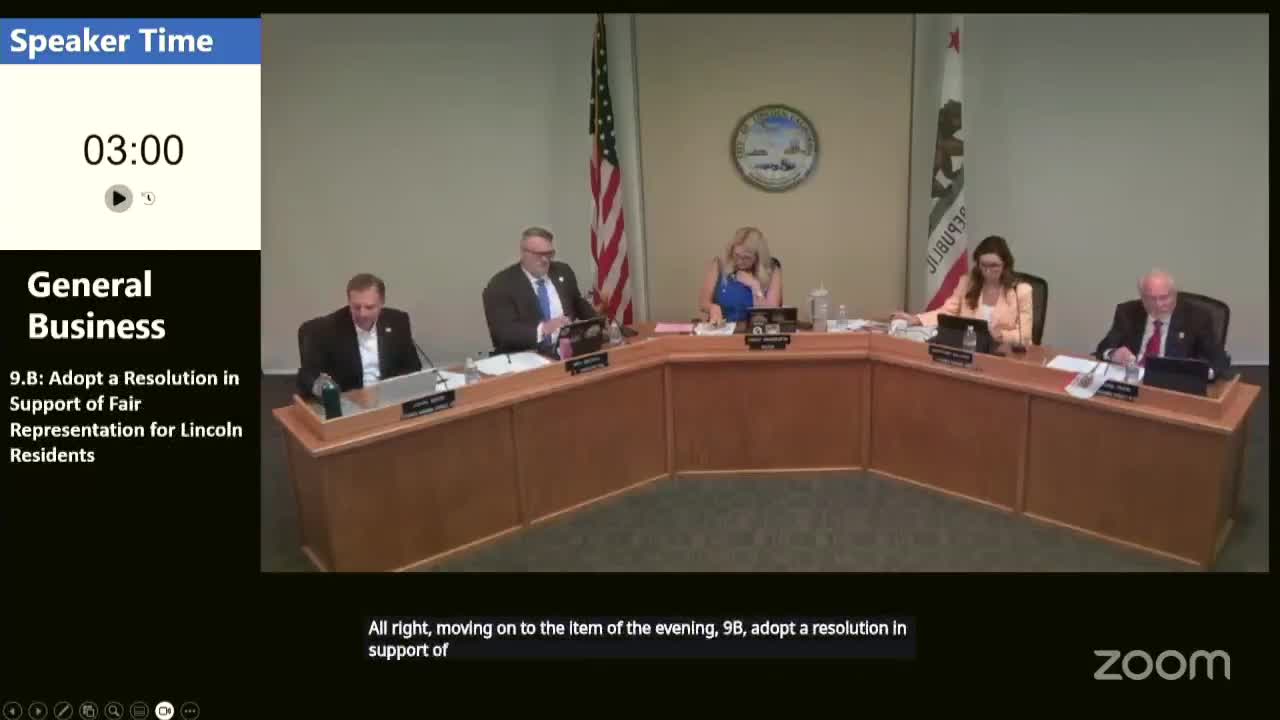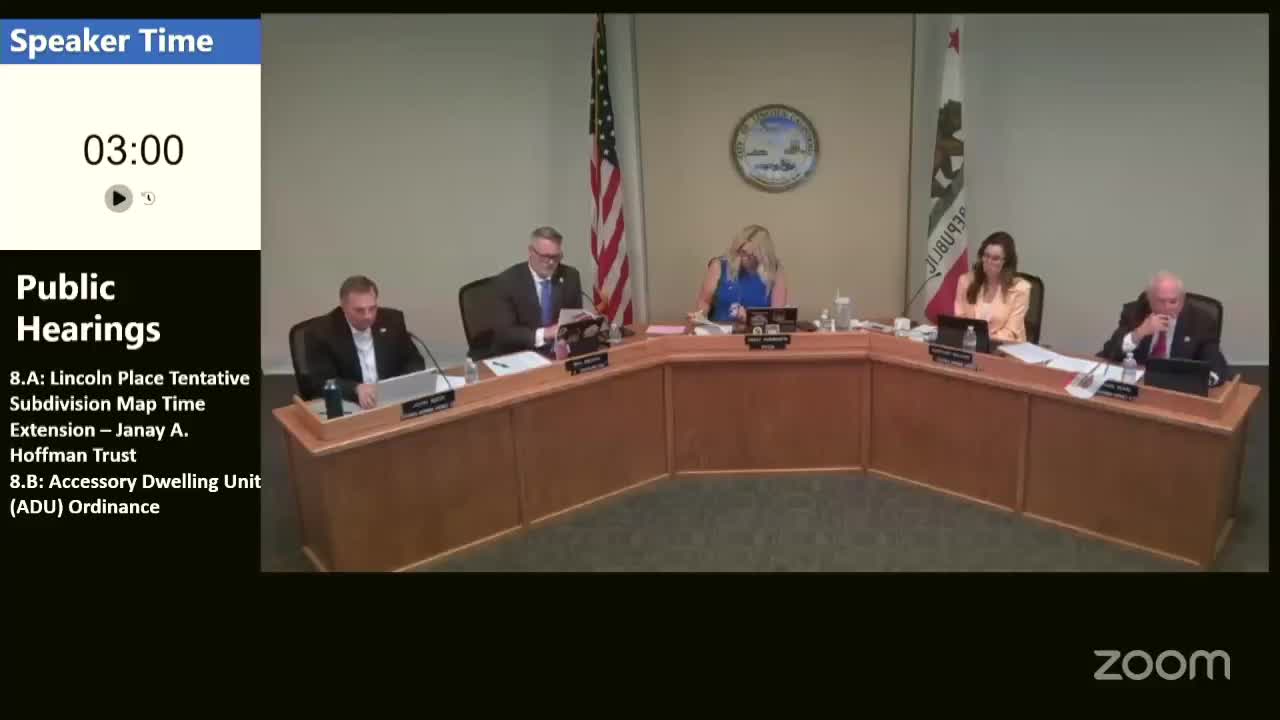Article not found
This article is no longer available. But don't worry—we've gathered other articles that discuss the same topic.

City adopts ADU ordinance amendments to comply with state law

Council delays vote on $900,000 budget augmentation and electric garbage truck purchase after debate over costs, roads and warranties

Lincoln council adopts resolution backing fair representation, condemning gerrymandering

